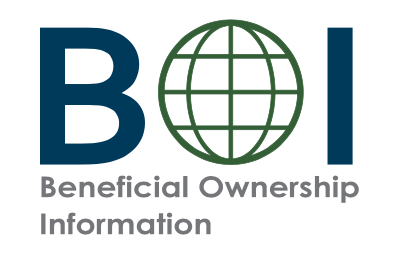
As of Jan. 1, 2024, certain U.S. entities are required to share information about their beneficial owners through Beneficial Ownership Information reporting.
Many NSCA members have already heard about the new BOI (Beneficial Ownership Information) requirements, which fall under the Corporate Transparency Act (CTA). The requirements were established to combat illicit finance activity and enhance transparency when it comes to corporate ownership.
Whether you were aware of these new requirements or not, every business should review CTA’s BOI and seek the assistance of an accountant or attorney for formal guidance. NSCA members should pay special attention to the exception for large entities, as explained below.
What Is the Beneficial Ownership Information (BOI) Requirement?
As of Jan. 1, 2024, certain entities in the United States are required to report information about their beneficial owners: individuals who own or control part of the company. This reporting is mandated and must be submitted electronically to the Financial Crimes Enforcement Network (FinCEN), a bureau of the Treasury Department. The information you share will be compiled in a database to help prevent the misuse of shell companies.
Which Entities and Individuals Are Required to Report?
Every corporation, limited liability company, or similar entity created by filing documents with a secretary of state or similar office, or formed under foreign law and registered to do business in the United States, must report beneficial ownership information. Additionally, every individual who qualifies as a beneficial owner or company applicant must also be reported.
Certain heavily regulated entities and companies engaged in activities that pose a low risk for money laundering, as well as inactive entities as defined in the regulations, may be excluded. There are 23 types of exempt entities, including public companies, banks, securities brokers and dealers, and insurance companies, which are already subject to stringent federal reporting requirements.
Additionally, there is an exemption for “large” entities that employ more than 20 full-time employees in the United States and reported more than $5 million in U.S. sales and gross receipts on their previously filed tax return. Please refer to the link at the end of this blog to find a comprehensive list related to exempt entities.
BOI Reporting Deadlines
- Companies created or registered before Jan. 1, 2024: Must file their initial report by Jan. 1, 2025.
- Newly created or registered companies in 2024: Have 90 calendar days to file after their creation or registration is effective.
- Companies created or registered on or after Jan. 1, 2025: Must file within 30 calendar days after their creation or registration is effective.
Who Are ‘Beneficial Owners’?
A beneficial owner is an individual who, directly or indirectly, does one of these things:
- Exercises substantial control over the reporting company
- Owns or controls at least 25% of the company’s ownership interests
Beneficial owners do not include minor children, nominees, intermediaries, custodians, agents, employees, inheritors, or creditors.
Who Are ‘Company Applicants’?
A company applicant is the individual who files the document that creates a domestic reporting company or registers a foreign reporting company to do business in the United States. Additionally, the person primarily responsible for directing or controlling that filing is also considered a company applicant for entities created on or after Jan. 1, 2024.
What Information Should Be Disclosed?
A reporting company must disclose the identity of each beneficial owner and company applicant, including:
- Full legal name
- Date of birth
- Residential street address
- An identifying number from a valid identification document (e.g., passport, U.S. driver’s license) and the issuing state or jurisdiction; an image of the identification document must also be provided
Ongoing Reporting Requirements
A one-time filing is required for non-exempt entities; however, if information changes, an updated filing will be required. Examples include change in address for the entity or beneficial owner, a change in beneficial owner, and an expired or updated driver’s license or passport, among others. All updated filings must occur within 30 days of the changes.
Court Challenges
On March 1, 2024, an Alabama federal district court granted an appeal regarding the constitutionality of the law. Currently, the ruling only exempts businesses that were members of the National Small Business Administration (NSBA) as of the ruling date. If this criterion is not met, filing is still required.
Immediate Action Needed
Failure to comply with these requirements can result in significant civil and criminal penalties.
Information regarding the BOI reporting requirements can be found here. Consider consulting with legal counsel if you have questions regarding the applicability of the CTA’s reporting requirements and issues surrounding the collection of relevant ownership information.
NOTE: The contents of this article are not to be considered official advice. Consider consulting with legal counsel or your CPA firm if you have questions regarding the applicability of the CTA’s reporting requirements and issues surrounding the collection of relevant ownership information.
Jeff Bronswick is the CEO at Bronswick Benjamin PC, an NSCA Member Advisory Councilmember and forward-thinking, 30-person CPA firm in Chicago. The firm focuses solely on privately held companies’ accounting, audit, and tax needs. He can be reached at this email address.














